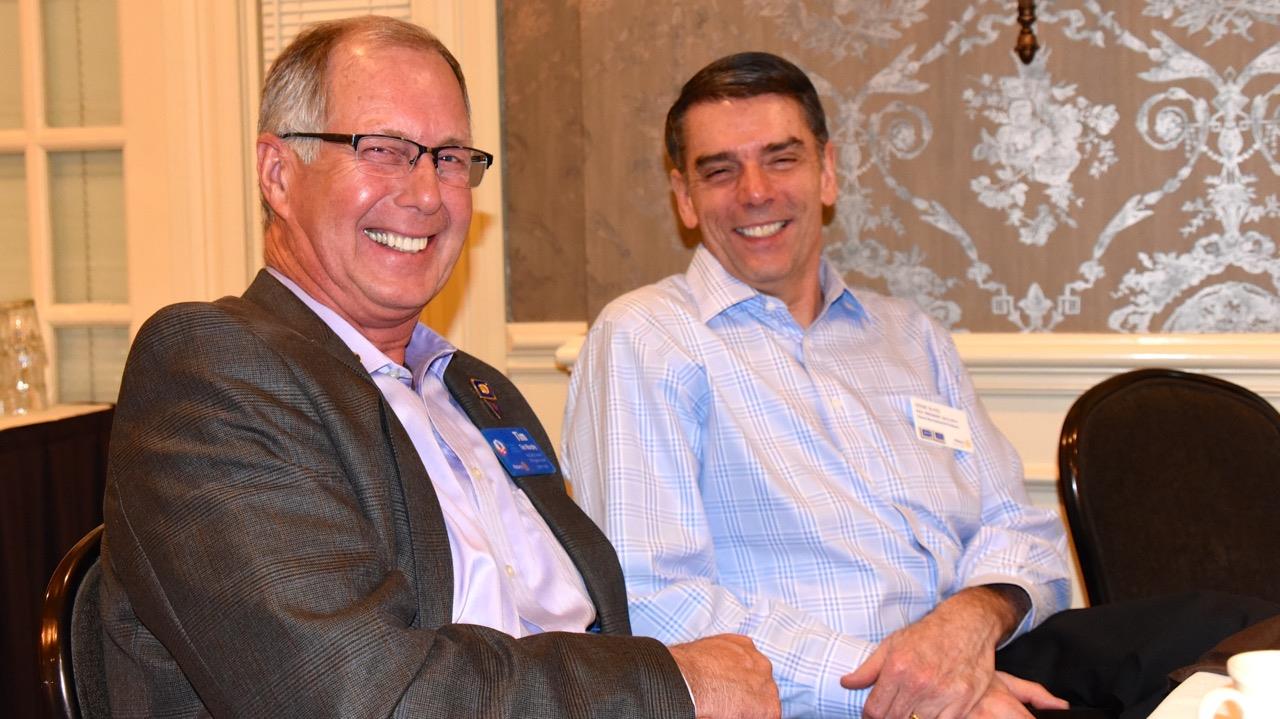In review
Posted by Melinda Inman on Feb 16, 2017
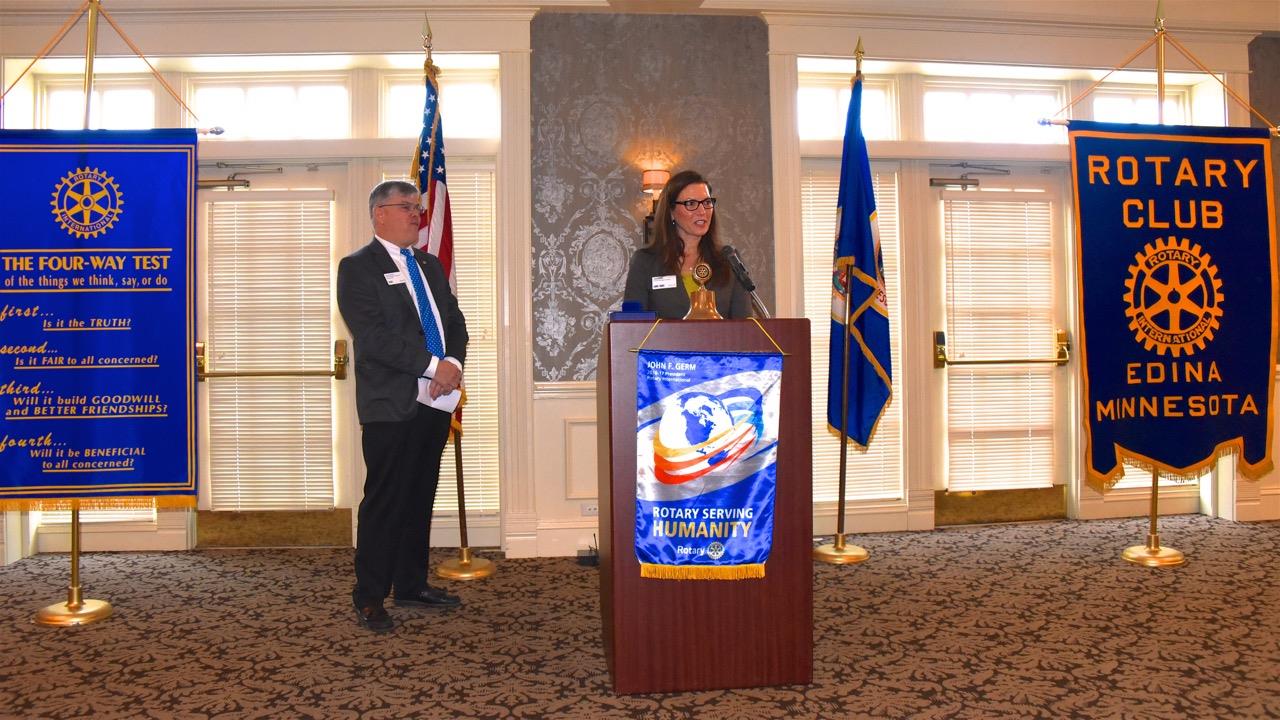
The Rotary Club of Edina met on an unseasonably warm Thursday, Feb. 16. The program speaker was Marna Anderson, development and communications director for Nonviolent Peaceforce, who spoke about "Unarmed Protection of Civilians in Conflict." Rotarian Jody Kern was honored as our club's newest Major Donor to The Rotary Foundation, with special meaning in this 100th year of TRF. And Libby Schmit gave a 2016–2017 Community Service local grant to Hearts and Hands on behalf of the Edina Rotary Foundation.
Click on the link to read more about the meeting...
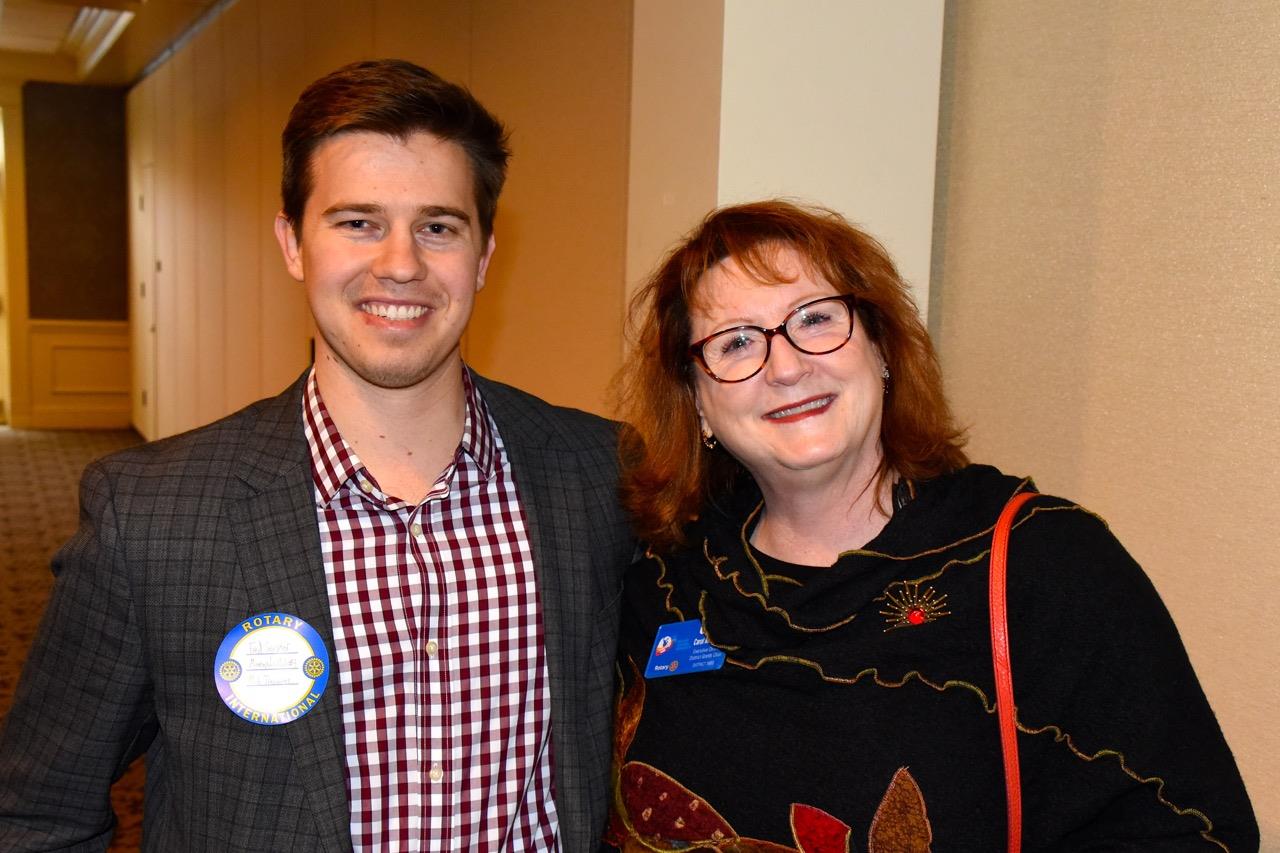 Matt Boockmeier announced visiting Rotarians at the Feb. 16 meeting and asked them to introduce themselves along with the name of their home club. Carol MacDonald was visiting from the Burnsville Breakfast Club, and she is also the Executive Director for Rotary District 5950; Fred Semmer from Minneapolis #9 Club; and Kathleen Lorlach, formerly of the University Rotary Club.
Matt Boockmeier announced visiting Rotarians at the Feb. 16 meeting and asked them to introduce themselves along with the name of their home club. Carol MacDonald was visiting from the Burnsville Breakfast Club, and she is also the Executive Director for Rotary District 5950; Fred Semmer from Minneapolis #9 Club; and Kathleen Lorlach, formerly of the University Rotary Club.Matt had Rotarians introduce their guests: Jon Barnett introduced Jane Sharkey, a psychotherapist; Frank Cardarelle introduced civil engineer Lance Elliot; Membership Recruitment Director Greg Yoch introduced three guests—chiropractors Dr. Scott Hawkins and Dr. Peter Morgan, and Nash Faulk. Nash and Scott, both from LIV Chiropractic, were just approved by the board for a shared membership. They are now in the member notification period. Dr. Morgan, from New York and in the area to speak to a group of chiropractors, was a guest of Dr. Hawkins.
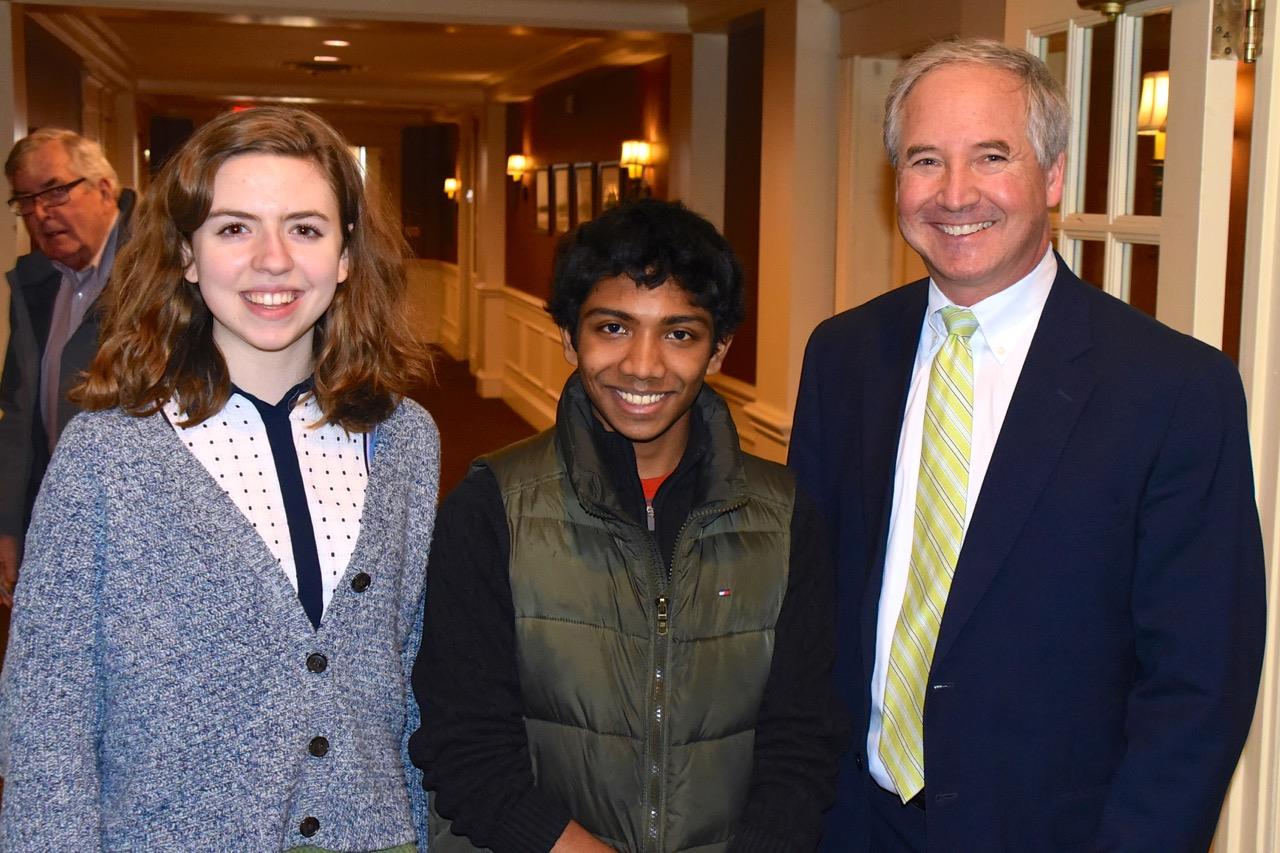 Steve Buettner introduced our student guests—Maxine McCormack and Bharath Muniraj. Both are twelfth-graders from Edina High School.
Steve Buettner introduced our student guests—Maxine McCormack and Bharath Muniraj. Both are twelfth-graders from Edina High School.Libby Schmit, a member of the Community Service–Local Funding Committee, introduced and presented a Edina Rotary Foundation local grant to Nan Upin and Nance Alexander from Hearts and Hands to help with their technology equipment operations. Hearts and Hands provides emergency non-medical assistance to families.
Former Rotary Club of Edina President Paul Mooty presented Jody Kern as our club's newest Paul Harris Major Donor. Thank you and congratulations, Jody, for your generous financial commitment to The Rotary Foundation! Jody is the 30th Rotary Club of Edina member to become a Major Donor. Our club has a long-standing annual goal to engage 100 percent of our members contributing to The Rotary Foundation.
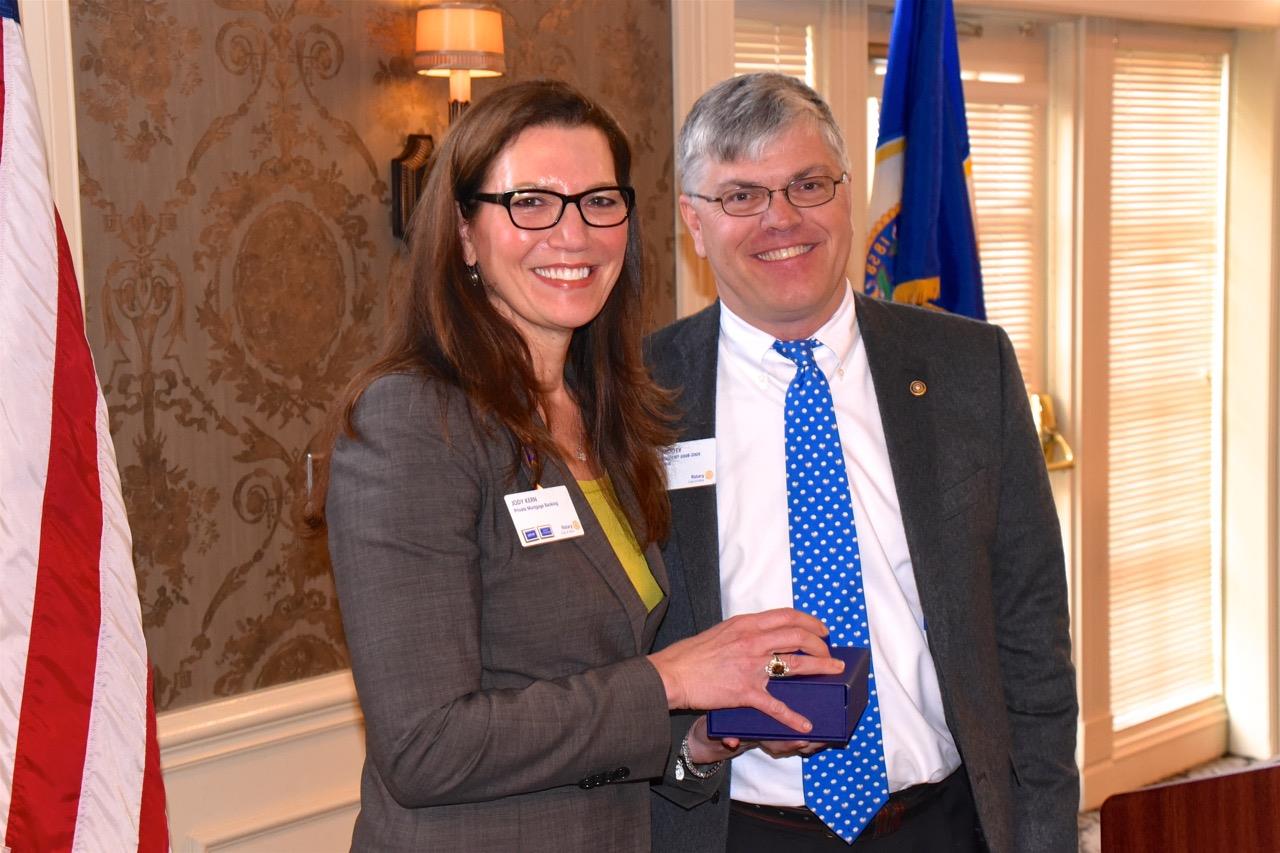
This is the 100th year of the Rotary International Foundation! In 1917, Rotary International President Arch C. Klumph proposed an endowment "for the purpose of doing good in the world." His vision became The Rotary Foundation. The Rotary Foundation transforms your gifts into projects that change lives both close to home and around the world. As the charitable arm of Rotary, TRF taps into a global network of Rotarians who invest their time, money, and expertise into TRF priorities, such as eradicating polio and promoting peace. TRF grants empower Rotarians to approach challenges such as poverty, illiteracy, and malnutrition with sustainable solutions that leave a lasting impact.
John Buttolph introduced this week’s program speaker, Marna Anderson, director of development and communications for Nonviolent Peaceforce. Her presentation was entitled "Unarmed Protection of Civilians in Violent Conflict."
What is Unarmed Protection of Civilians? Unarmed civilian protection (UCP) refers to the use of unarmed civilians to do "peacekeeping." Peacekeeping is about preventing, reducing and stopping violence.
It is a common assumption that only armed military or police can do the work of peacekeeping, however unarmed civilians have been successfully "keeping the peace" in situations of violent conflict all over the world, and their numbers are increasing. Unarmed civilian peacekeeping is a generic term that gives recognition to a wide range of activities by unarmed civilians to reduce violence and protect civilians in situations of violent conflict.
There is nothing new or surprising about using unarmed civilians to do peacekeeping as such. Parents, teachers, social workers, and community leaders have been successfully intervening to stop violent behavior and to protect children and adults from hurting each other from time immemorial.
The first international peacekeeping interventions by the United Nations were also unarmed "observer mission," using military officers but without weapons. Some of the most successful peacekeeping of recent years has been carried out by unarmed civilians deployed by the European Union (EU) and by the Organisation for Security and Cooperation in Europe (OSCE). Civil society organizations such as Witness for Peace and Peace Brigades International have been engaged in UCP since the early 1980s and there are now dozens of international civil society organizations doing this work in conflict zones around the world.
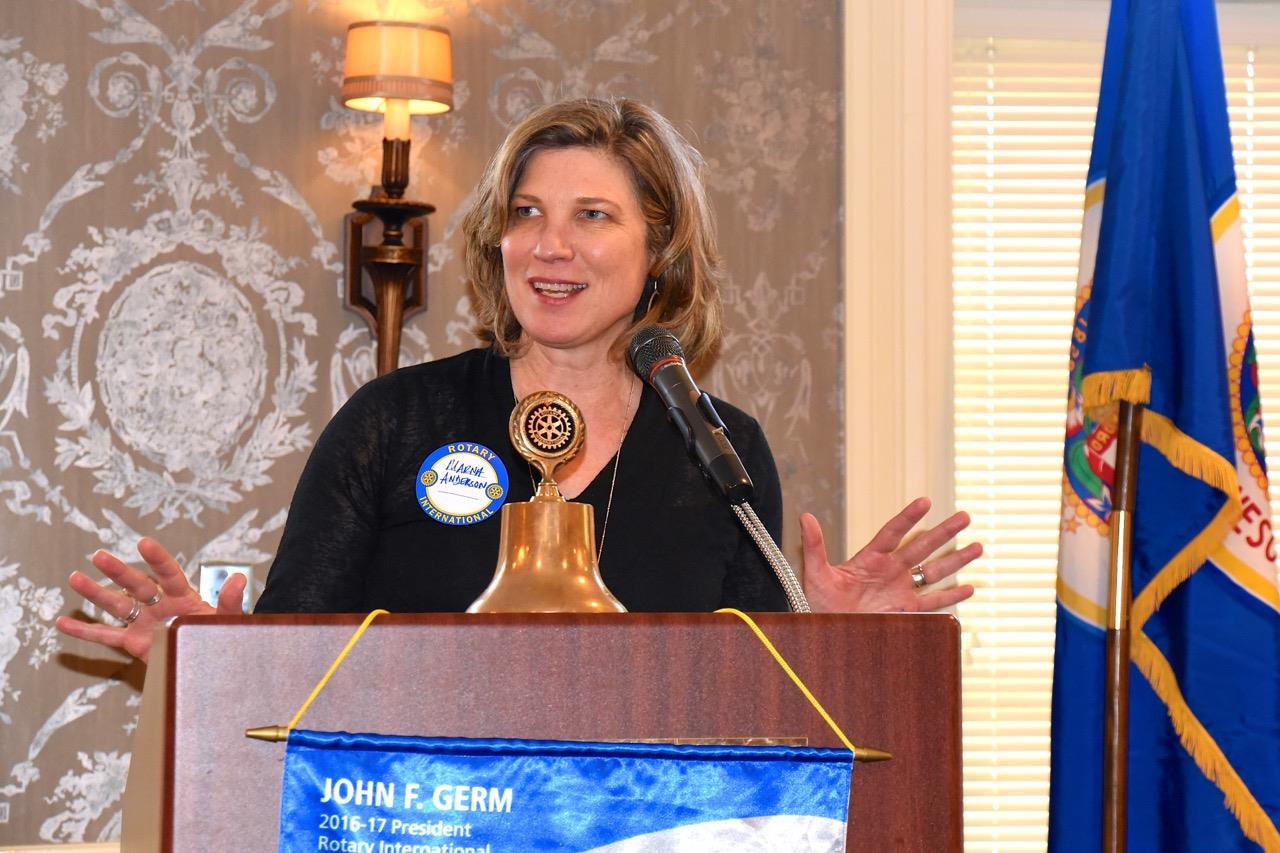
NP’s approach to UCP, by contrast, relies solely on dialogue with the armed actors themselves to help them behave in ways that will reduce violence and protect civilians. This approach depends on building relationships of mutual trust and understanding that preclude the kinds of "naming and shaming" that other forms of UCP may involve. NP has international paid staff where 42 percent are female who work with the respective local partners. Building relationships is key to success and helps curb retaliation from opposing forces. Non-violent means to peacekeeping has a profound impact on troubled areas in terms of saving lives, keeping communities in place, fostering relationships and humanitarian service to name a few. NP is funded by private, corporate and government grants.
Mike Kallas thanked Marna for her presentation.
President Ann Platt closed the meeting saying, “The quote I chose for this week is truly a hat trick! It is in honor of Black History month, Valentine’s Day and Marna’s presentation. It is from Martin Luther King.”
"At the center of non-violence stands the principle of love."
